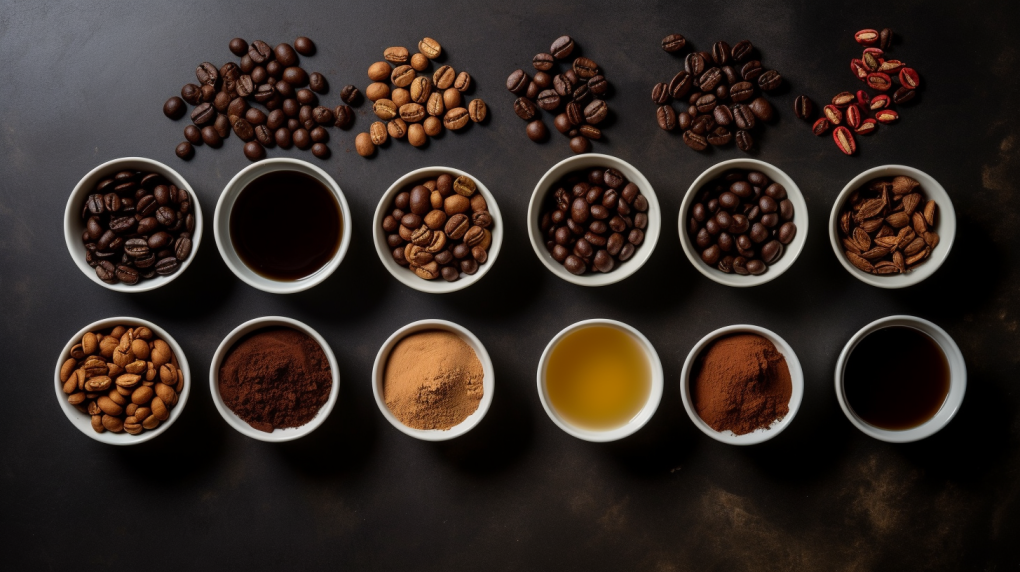Coffee ranks among the most widely enjoyed beverages globally, cherished for its rich aroma and diverse flavours. Among the various coffee varieties, Arabica coffee beans are celebrated for their unique flavour profile, setting them distinctly apart from other coffee varieties. This article will explore the intriguing world of coffee, exploring how the flavour profile of Arabica coffee beans differs from other coffee types.
The Arabica Coffee Plant
Before diving into the nuances of Arabia’s flavour, it’s important to understand the Arabica coffee plant itself. Arabica, scientifically known as Coffea arabica, constitutes one of the two fundamental coffee bean species, the other being Robusta (Coffea canephora). Arabica beans are known for their mild and nuanced flavours, making them the preferred choice for specialty coffee. It is prized not only for its flavour but also for its lower caffeine content compared to Robusta, which contributes to its smoother and less bitter taste.
Altitude Matters
One of the key factors influencing this coffee’s flavour profile is the altitude at which it is grown. This coffee is typically cultivated at higher elevations, often between 2,000 and 6,000 feet above sea level. This high-altitude environment results in slower bean development, allowing more complex and developed flavours to develop within the beans. The cool temperatures and lower oxygen levels at higher altitudes also contribute to the unique flavour characteristics of this coffee.
Arabia’s Cultural Significance
Beyond its remarkable flavour profile, this coffee holds a special place in the cultural fabric of many coffee-producing regions. Coffee ceremonies, rituals, and traditions are deeply intertwined with coffee in countries like Ethiopia, where the coffee plant is believed to have originated. These cultural practices celebrate not only the taste of the coffee but also the social bonds and hospitality that coffee gatherings foster. Arabica coffee’s cultural significance extends far beyond the cup, emphasising the importance of preserving its unique flavours and the traditions associated with its consumption. In essence, this coffee is not just a beverage but a symbol of shared experiences and cultural heritage.
Distinctive Acidity
One of the most distinguishing features of Arabica coffee is its acidity. However, it’s essential to clarify that coffee acidity does not refer to the sourness commonly associated with the term. In the world of coffee, acidity is a positive attribute that contributes to the overall flavour complexity. These beans are renowned for their bright and vibrant acidity, ranging from mild and subtle to pronounced and zesty.
Sustainability and Arabica Coffee
As consumers become more concerned about the environment and ethical aspects of their coffee choices, it’s worth noting that Arabica coffee is often associated with sustainable and environmentally friendly practices. Many coffee farms that produce Arabica beans prioritise organic and shade-grown cultivation methods. These methods not only help protect the natural habitat and biodiversity but also contribute to the unique flavour profile of Arabica coffee. Shade-grown beans, for example, tend to develop slower, resulting in a more rich and refined flavour.
Arabica’s Place in Specialty Coffee
Specialty coffee, a term used to describe high-quality, meticulously sourced, and expertly roasted coffee beans, often features Arabica varieties prominently. The intricate flavour profile of this coffee is what makes it a preferred choice for specialty coffee enthusiasts. Coffee roasters and baristas worldwide value these beans for their ability to showcase various flavours and aromatics, allowing them to craft exceptional coffee experiences. The attention to detail and craftsmanship that goes into producing Arabica coffee aligns perfectly with the ethos of the specialty coffee industry, where each cup is a testament to the dedication of those who nurture the beans from the farm to the brew.
Arabica and Blends
While this coffee is celebrated for its unique flavour profile, it is also commonly used in coffee blends. Coffee roasters often blend Arabica with other coffee varieties like Robusta to create well-balanced and complex flavour profiles. Its mild acidity, sweetness, and nuanced flavours complement the boldness and body of Robusta beans. Blending allows roasters to tailor the taste of their coffee to meet specific preferences and to achieve consistent quality across batches.
Conclusion
In the world of coffee, Arabica coffee beans stand as a symbol of flavour diversity and complexity. Its unique flavour profile, influenced by factors like altitude, acidity, region, processing method, and roast level, offers coffee enthusiasts a wide range of tasting experiences. Whether you prefer a bright and floral Ethiopian Arabica or a nutty and chocolatey Brazilian Arabica, there’s an Arabica coffee to suit every palate. Exploring the intricate world of Arabica flavours is a delightful journey that enables you to savour the nuances of this beloved coffee variety.


